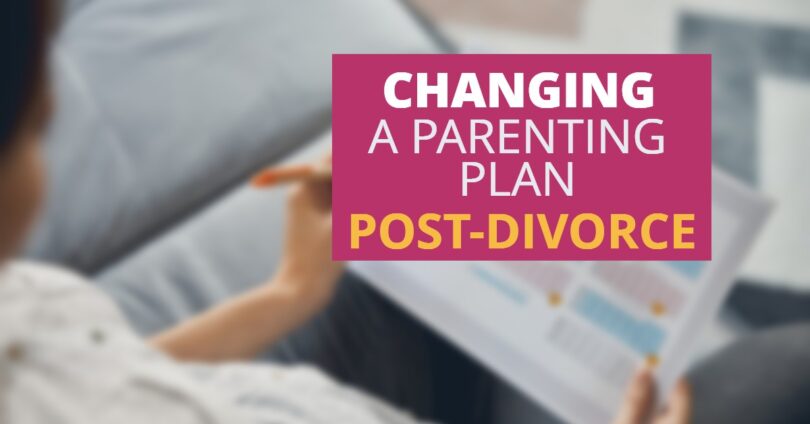After a divorce, it is not unusual for one or both parties to want to make modifications to the Permanent Parenting Plan Order for their children. The proof required to support a modification will depend on whether the requested change would involve a change of “custody” (i.e., a change of the primary residential parent, namely, the parent who has the children most of the time) or, instead, just a change to the existing parenting schedule.
If you are only seeking to change the schedule or the number of days you have with your child, but are not seeking to change the primary residential parent, your burden of proof is comparatively low. For example, you can establish that there has been a “material” change of circumstances by proving that the existing schedule has been unworkable for you and your ex. However, if you are trying to change the primary residential parent, you need to prove a more substantial (but still “material”) change. For example, you might seek to prove that the primary residential parent is incapable of taking adequate care of the children for a majority of the time. In other words, if you are just trying to change “dad’s” days from 100 to 110, not much proof is required. But, if you’re trying to reduce “mom’s” days from 215 to 100 because she is incompetent, you had better come to court fully armed.
Another important distinction: If you are just trying to modify the parenting schedule, you do not have to show that the alleged “material” change of circumstances is one that was not known or reasonably anticipated at the time the original Parenting Plan Order was entered. However, if you are seeking to change custody, you do have to show that the change was unknown or unanticipated. And, you must show that the change has affected the well-being of the child in a significant way. You must also show that a modification of custody is now in the child’s best interests.
Post-divorce child custody cases can be very nuanced and difficult, and can turn on may factors. If you find yourself involved, or potentially involved, in such a case, be sure to consult a family law attorney who can guide you through the process, and help you protect your rights and your children.





